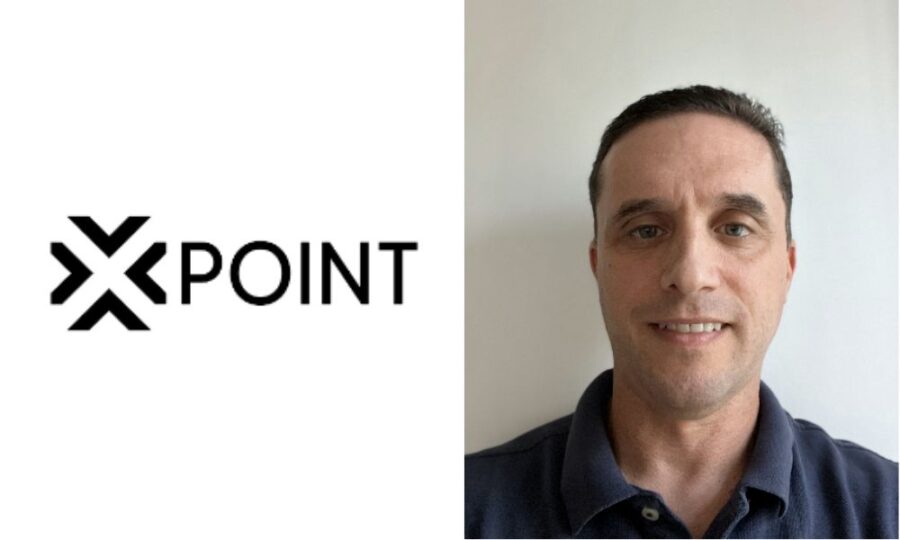Xpoint names Chris Boni as Chief of Staff

Xpoint on Tuesday appointed Chris Boni as its Chief of Staff.
Boni’s resume includes product and strategic leadership with global gaming companies.
“We are delighted to welcome Chris to Xpoint, leveraging his extensive experience in the igaming industry at some of the biggest names in the business,” Xpoint Chief Executive Manu Gambhir said in a statement. “He joins us at a pivotal moment in our evolution as a supplier, as we further establish ourselves as a leading geolocation technology provider in the igaming space.
“His extensive experience in driving operational excellence and strategic execution will be invaluable as we continue to expand our global footprint and deliver on our ambitious vision.”
Boni most recently served as Aristocrat’s Senior Vice President of Product, Social Casino, after senior leadership roles including IGT’s Vice President, Digital Gaming Products and Betfair Director of US Products.
Boni will serve as a partner to Chief Executive Manu Gambhir and the executive team. His mandate is to oversee operations, drive key initiatives and ensure alignment across the organization to maximize efficiencies.
Boni’s appointment follows that of Tom Flaherty, named Chief Financial Officer this year.
“I’m excited to join Xpoint at this pivotal juncture,” Boni said. “My focus will be on driving strategic alignment across the organization and enhancing our operational execution to ensure Xpoint is moving efficiently toward its goals.
“I look forward to collaborating with the leadership team to transform our ambitious vision into sustainable, tangible growth for all stakeholders.”
Verticals:
Sectors:
Topics:
Dig Deeper
The Backstory
How compliance tech moved to the center of online gaming
Geolocation and fraud prevention have shifted from back-office utilities to front-line differentiators as more jurisdictions regulate online betting and casino play. Operators must ring-fence state and provincial borders, prove player location, and stop bonus abuse and identity fraud in real time. That imperative has catalyzed consolidation moves, leadership reshuffles and new supplier-operator alliances across North America and Europe, setting the stage for the current development.
Two of the most visible players in this compliance stack, GeoComply and Xpoint, are building for scale through executive hires and deeper integrations. GeoComply brought in a seasoned operator in Kip Levin as CEO, elevating co-founder Anna Sainsbury to executive chairman and positioning co-founder David Briggs over product and technology. Xpoint is adding operating muscle of its own, naming Chris Boni as chief of staff after earlier appointing Tom Flaherty as CFO. The moves underscore how compliance technology has become a growth engine rather than a cost center as suppliers compete to win long-term platform slots with operators and aggregators.
The stakes are largest where enforcement is strict and market access is valuable. Ontario’s regulated market is a prime example, where operators must verify customer location with precision and document it to pass audits. That has turned compliance uptime and accuracy into commercial metrics as important as conversion and retention, particularly for new market entrants with investor timelines to hit.
Xpoint’s operating push meets new market entries
Xpoint’s latest leadership additions point to an execution-heavy phase. The company said Boni will partner with CEO Manu Gambhir and the executive team to align operations and shepherd key initiatives at a moment it describes as pivotal in its evolution as a supplier. The timing dovetails with a growing roster of operator integrations, including a tie-up with High Roller Technologies tied to the operator’s Ontario launch. In announcing the deal, High Roller called Xpoint’s toolset “best-in-class,” while Xpoint framed geolocation and anti-fraud as advantages for operators expanding into regulated markets through embedded solutions.
The High Roller-Xpoint partnership is also notable for its technical stack: Xpoint’s services are fully integrated with the Playtech online casino platform, which powers High Roller’s brands. That pre-integration helps compress launch timelines, a competitive edge for newcomers racing to secure share. High Roller has already applied for an Ontario license and is targeting a second-half 2025 debut, a calendar that makes reliability and audit readiness non-negotiable.
Xpoint’s C-suite expansion—first finance, then chief of staff—signals a bid to scale delivery as it juggles platform partnerships and enterprise onboarding. In a market where a single outage can derail a provincewide launch or invite regulatory scrutiny, operational cadence can be the deciding factor in renewals and references. Suppliers courting large operators and B2B studios need not only feature parity but also proof of disciplined rollout and support.
GeoComply resets leadership for the next growth curve
Rival GeoComply is also retooling at the top, naming Levin as CEO with a mandate that blends product innovation and customer expansion. Levin’s tenure leading FanDuel’s U.S. business and his product background at Ticketmaster suggest a focus on scaling complex, high-uptime services that sit in the transaction flow. The reallocation of roles for the co-founders—Sainsbury on long-term strategy as executive chairman and Briggs over product and innovation—indicates a push to formalize a dual track of enterprise growth and R&D.
For operators, the supplier’s internal alignment matters less than the resulting resilience and speed. But leadership with operating pedigrees tends to prioritize measurable outcomes—latency, false positive rates, fraud detection efficacy—that translate into fewer blocked deposits and smoother KYC funnels. As more operators run multistate or multiprovince books, the ability to harmonize compliance across jurisdictions while keeping the customer experience intact becomes a deciding factor in vendor selection.
Operators tune for regulated markets and local leadership
On the operator side, High Roller is assembling local expertise to execute its roadmap. The company named Sara Nunes managing director and chief commercial officer for Finland, signaling a strategy that mixes targeted country leadership with platform partnerships. Nunes brings a decade of operator-side experience at Rootz, Kindred and Betsson, with responsibility spanning P&L and partnerships—skills directly applicable as High Roller phases into regulated markets like Ontario.
The operator is also broadening distribution and content ahead of expansion. It recently entered a new partnership with Gaming Realms in Ontario while leaning on the Playtech backbone referenced in its deal with Xpoint. For younger brands, securing pre-integrated content and compliance services reduces the operational drag of market-by-market launches, allowing commercial teams to focus on acquisition and retention.
Content studios are making similar preparations. RubyPlay appointed Motti Gil as CFO to support international expansion after the studio’s U.S. entry through Rush Street Interactive. Gil previously served as CFO at NeoGames, which was acquired by Aristocrat for $1.2 billion in April 2024, experience that aligns with navigating regulated jurisdictions and complex platform relationships. For content suppliers, aligning finance and compliance capabilities with distribution partners can accelerate approvals and shorten content go-live cycles in new states and provinces.
Regulatory shocks reshape priorities and budgets
While North American jurisdictions continue to normalize online wagering and casino play, other markets are moving in the opposite direction. India’s newly introduced ban on paid online games forced rapid retrenchment. Mobile Premier League said it will cut about 60% of staff in its home market after the company’s India revenues went to zero, according to an internal note cited by Reuters. The shock rippled to peers: Dream11 reported a 95% overnight revenue drop and A23 filed the first legal challenge to the ban.
The India whiplash highlights why global operators and suppliers are tilting budgets toward jurisdictions with clearer licensing paths and enforceable rules. In those markets, the compliance stack—geolocation, identity, payments risk—becomes a growth enabler rather than a pure cost. Conversely, where frameworks turn hostile, even well-capitalized platforms must unwind investments quickly, compressing marketing and engineering teams and pausing product roadmaps.
That divergence is shaping hiring and capital allocation. Companies with North American exposure are putting seasoned operators into leadership roles and tightening execution around regulated launches. Suppliers that can embed and certify quickly across multiple platforms and operators stand to gain share as budgets consolidate around partners seen as safe bets.
What to watch next
For compliance tech, the next phase will be about measurable reliability and breadth: uptime during peak weekends, accuracy that minimizes false declines, and seamless integration across major platforms. Xpoint’s new operating cadence under Chris Boni will be tested as partners like High Roller target Ontario in 2025. GeoComply’s leadership transition will be measured by product velocity and international wins.
Among operators and content studios, the through line is disciplined expansion. High Roller’s leadership additions in Finland and pre-integrated tech stack suggest a playbook geared for faster regulatory onboarding. RubyPlay’s finance-first scaling mirrors a wider trend of building compliance and audit readiness into growth plans. Against a backdrop of abrupt policy shifts in markets like India, the emphasis on regulated jurisdictions is likely to intensify, putting further premium on vendors and leaders who can turn compliance into a competitive edge.








